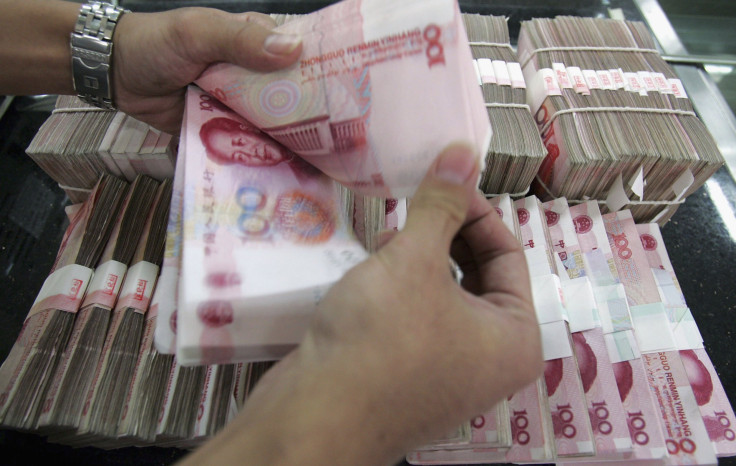China Tightening Capital Controls: A Least Bad Option To Stem The Slide In China’s Currency

At the annual meeting of the World Economic Forum in Davos, Switzerland, last month, Haruhiko Kuroda, the governor of the Bank of Japan, offered some unsolicited advice for Chinese officials fending off constant pressure for a devalued renminbi. Capital controls, he said during a panel discussion, “could be useful to manage the exchange rate, as well as the domestic monetary policy, in a consistent and appropriate way.”
The advice comes as China continues to grapple with the flight of money abroad and a falling renminbi (whose basic unit is the yuan). A nation that can comprehensively censor the internet and squelch public dissent should be able to stop its currency from flying out of the country. But now that China has gone down the road of financial liberalization, going backward comes with political and financial costs.
About five years ago, China began making it easier to swap renminbi for dollars and other foreign currencies and take that money out of the country. At the time it made sense, for China anyway: It was under pressure to let its currency appreciate, so easing outflows was one way to relieve that pressure. Absolute limits on buying dollars gave way to a more nuanced system that let big Chinese companies with operations overseas move money with greater freedom than ever before.
At the same time, the central bank was juicing the economy with cheap credit, creating renminbi just waiting to head out of China once it could no longer be put to productive use within the country. By the fall of 2015 the situation had reversed. In December alone, $108 billion flowed out of China’s foreign exchange reserves, wrapping up a year in which they declined by over half a trillion dollars, to $3.3 trillion. With growth slowing in China, all that money sloshing around in the country was seeking a better return somewhere else, and the now-porous capital controls were letting that happen.
“China has capital controls appropriate for an economy of seven or eight years ago,” said Derek Scissors, a resident scholar at the American Enterprise Institute. “Since then, China’s banking system has become much more intricate, and there’s been an absolute explosion of the money supply.”
The result has been a series of measures — not seamless policy, but more like a badly assembled quilt — that attempt to regulate out of existence paths for cash to leave, or tame the animal spirits of Chinese financiers.
For example, Beijing imposed restrictions on using credit and debit cards to buy insurance policies overseas, a purchase many Chinese were making to avoid the limit individuals face on taking a maximum of $50,000 out of the country, according to Bloomberg News. At other times, investors seeking dollars from the foreign exchange regulator get unsolicited — and unwelcome — “window guidance” on how much they can take out.
The French bank Société Générale has calculated that if 5 percent of the Chinese population took the maximum $50,000 out of the country, it would wipe out foreign exchange reserves entirely.
“Just because you have the world’s biggest foreign-exchange reserves, the domestic monetary implications of running down your reserves at a rapid pace shouldn’t be underestimated,” Kit Juckes, a global strategist at Société Générale, told Bloomberg News. “They have a clear choice: tightening the capital account or allowing the currency to depreciate more quickly."
Neither of those choices is very palatable.
New capital controls — such as absolute limits on what Chinese companies and citizens can take out of the country — would flout International Monetary Fund rules regarding freely convertible currencies only months after the organization admitted China into its elite basket of currencies. In effect, the People’s Bank of China, the steward of the renminbi, could lose the prestigious prize it just won.
“The Chinese are very conscious of the fact that significantly tightening the financial account would work against the internationalization of the yuan and [would be] a significant loss of face for the PBOC,” said one close observer of China.
Floating the renminbi in foreign exchange markets might do the trick as well, but at a cost of triggering competitive devaluations among competitors at a time when global growth is weak and hurting Chinese exports. That step could also trigger a political backlash.
That leaves capital controls as perhaps the least bad option, even though it’s a tacit admission that the market, and not the Chinese government, is calling the shots now more than ever.
“Whenever you try to chase excess liquidity you are always behind the curve,” Scissors said. “The money is already gone when you close one route, and it goes someplace else.”
© Copyright IBTimes 2024. All rights reserved.





















